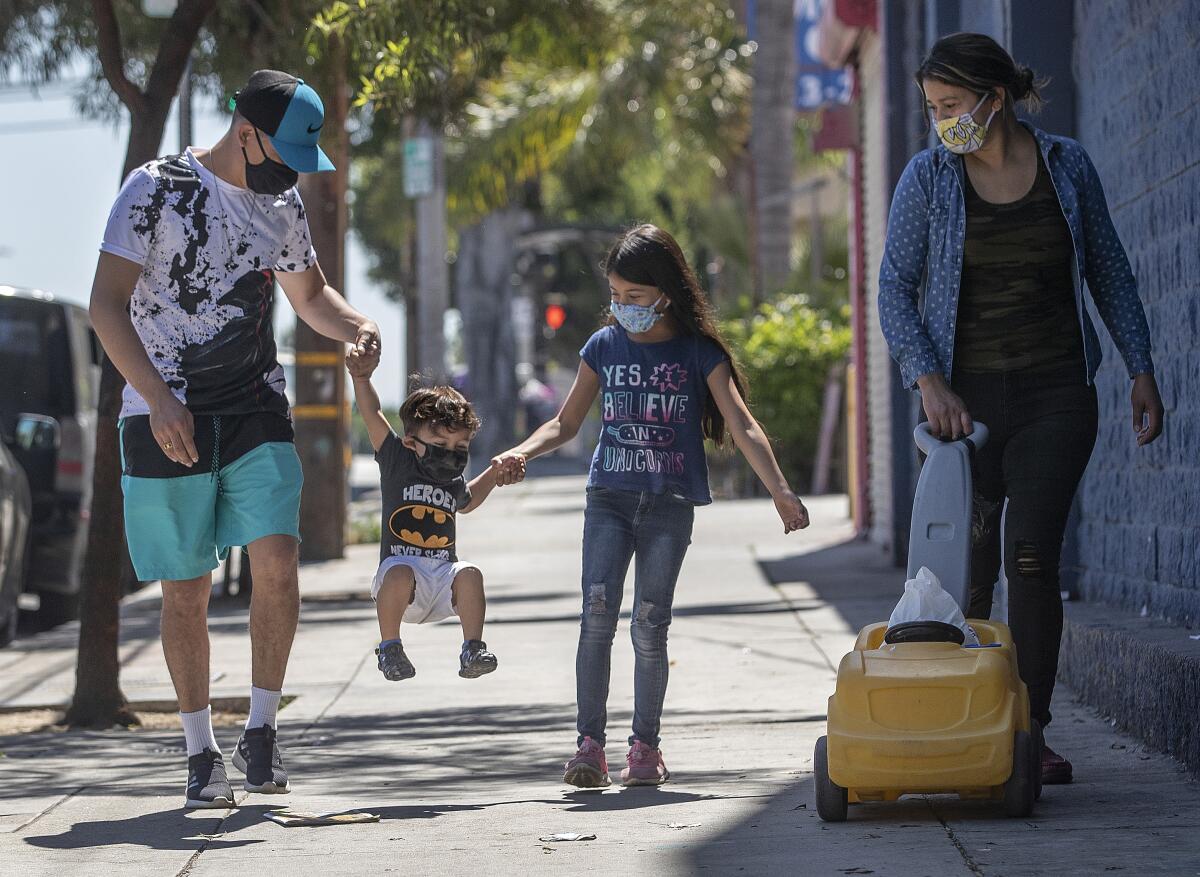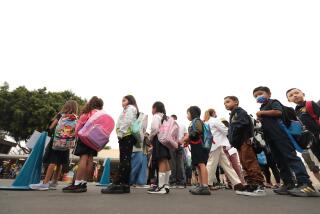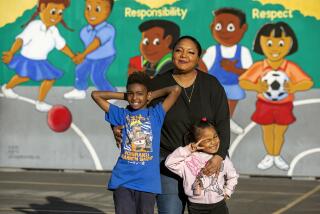Still trying to get a handle on schooling from home? Home-schoolers know a thing or two

Ten-year-old Eva used to whiz through exercises in school, finishing before most of her friends and sometimes mentoring other students.
But since her classes moved to distance learning in March, the fourth-grader at Lakewoodâs Cleveland Elementary School has struggled to adjust. Endless worksheets arenât particularly motivating, and raising a hand in class isnât as easy over Zoom.
âLearning as it is, is sometimes difficult in school,â said Shoshanah Abraham, Evaâs mother. âBut to learn when youâre home in your room, even if youâre at a desk and youâre not distracted â weâre in the middle of a pandemic, how much can a kid really learn?â
So Abraham turned to a group that has some expertise: home-schoolers.
Home-schooling â an all-encompassing term that describes various forms of learning at home, in cooperative settings or online â is not exactly the same thing as distance learning.
âThis is sort of the schooling of last resort. Whereas for most home-schoolers, itâs a choice, and itâs something thatâs planned out with some forethought,â said Robert Kunzman, a curriculum and instruction professor at Indiana University and managing director for the International Center for Home Education Research.
With campuses closed due to the coronavirus, parents in L.A. and elsewhere fear learning loss and diminished futures as they struggle to pay bills.
Of course, not every parent has the privilege of time and resources to build full-fledged home-school courses during the pandemic. But Heather Martinson, 53, a home-school mom of 25-plus years who runs the Celebration Education learning center in Santa Ana, encourages parents to harness the spirit of home schooling while the stay-at-home order persists.
The first lesson, according to Martinson? Donât sweat the academics too much right now.
âIt will come. But when things are unusual or strange or unsettled, itâs difficult to learn,â Martinson said. âFamilies can make the most out of this time and even make it educational and fun by making it experiences that they spend together.â
The essence of home-schooling, Kunzman said, is âthis idea that thereâs so much going on in daily life that is potentially educative.â
âIf itâs looked at that way, and if parents as instructors can be a little more deliberate and intentional about those experiences,â he added, âthey can certainly constitute really valuable learning experiences.â
Most K-12 home-schoolers participate often in family activities, such as building or creating projects, playing sports and other exercise, playing board games and doing arts and crafts together, according to a National Center for Education Statistics survey in 2016.
Martinson recommends families go for walks, read and journal every day. Research projects are better for older students. Younger children will learn more with tactile exercises.
âWhatâs awesome is they learn to love to learn,â said Martinson. âThey become curious or remember what curiosity is like. Itâs good, and it feels good, and itâs [exciting]!â
Earthroots Field School in Orange County typically offers classes for home-schoolers based in nature, such as geology lessons at a natural hot spring or animal tracking along a wooded trail. Since the pandemic, founder, executive director and home-school mother Jodi Levine-Wright has transitioned many of the schoolâs resources online and in mail-able kits, so families can continue nature lessons from home. Her website teaches children how to identify flora and fauna, go bird-watching and even make food from acorns.
âThereâs innate wisdom in just touching sticks and feeling the grain and watching the sun and looking at the moon,â Levine-Wright said. âItâs beautiful that parents are now able to do that with their kids.â
Part of her schoolâs lesson plan is a daily âquiet sitâ â going outside, sitting and observing nature for as little as five minutes. Even resting beside a potted plant on an apartment balcony or opening the window to the birds will do, she said â anything to connect children, family and nature.
âWe had a magical moment where a hummingbird came and drank nectar from a flower in our yard,â Levine-Wright said of Monday morningâs quiet sit with 6-year-old daughter Willow. âJust seeing that, it felt like a gift ... to be able to witness that simple miracle.â
Distance learning makes analyzing studentsâ work difficult, an art-school prof says, and the connection between teacher and student can falter.
Martinson also advises finding engaging lessons from mundane items or experiences. For example, her children once discovered that baking soda and vinegar in a plastic bag could make a âbag bomb,â and that became the foundation of their science lesson for the day.
âInstead of expecting your child to do a certain number of worksheets by noon, you can ... go for a walk and examine bugs and birds and learn about those things,â she said. âIt may not be meeting the requirements of the school, but especially grade school kids, that information that theyâre learning, itâs easy to catch up.â
Many public schools have already adjusted their expectations for grades in the coronavirus-interrupted school year. The Los Angeles Unified School District, for example, will not issue a failing grade to any student this year. Many standardized tests for K-12 students across the country have been canceled.
Public and private school teachers still need to track the progress of their students, but Kunzman said no one should expect the same outcomes this year. He advises parents to âcut themselves a little slack.â
âMake sure that the care of the relationship is paramount,â he said. âThere are ways that you can help your child be engaged with learning, to help learning be fun as a distraction or as something to do during this time â I think thatâs a real victory in and of itself.â
In this time of virtual classes, the pandemic itself could be the textbook for students.
A trademark of any good education, whether conventional or at home, Kunzman said, is when an instructor knows a student well enough to help them invest in and engage with their own learning. Parents usually have an advantage.
Still, he acknowledged each relationship with a child is different. Taking every opportunity as a teaching moment could come across as overly pedantic and create tension between the parent or guardian and child. Adults should avail themselves of resources, such as other family figures, online learning tools and books.
âOne of the most important things about home-schooling parents is they understand their own strengths and weaknesses, and they understand what their own relationship [is] to the child,â Kunzman said. âItâs a complicated calculus when youâre both parent and instructor.â
More to Read
Sign up for Essential California
The most important California stories and recommendations in your inbox every morning.
You may occasionally receive promotional content from the Los Angeles Times.













